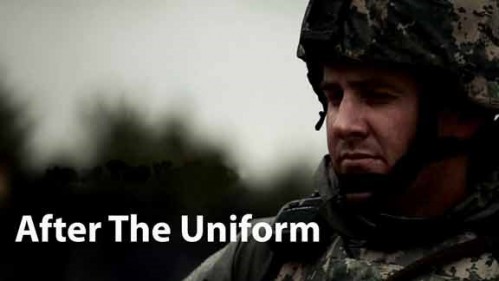 Armed Forces Day is Saturday, May 21 and it’s a time to come together and thank our military members for their service to the USA.
Armed Forces Day is Saturday, May 21 and it’s a time to come together and thank our military members for their service to the USA.
The Center for Public Safety Innovation (CPSI) at St. Petersburg College wants to honor those who serve by helping veterans and their families realize the transition between deployment and home-life or from duty to civilian life is not an easy one.
The documentary video After the Uniform takes a look at the post-service lives of veterans. The individuals profiled will help audiences understand post-traumatic stress disorder (PTSD) and other psychological issues veterans may face after their service or deployment ends.
 Recently, CPSI learned this video won the prestigious Communicator Award of Excellence in the social issues category for video production. There were more than 6,000 entries from around the world and “After the Uniform” scored more than 90 points on a scale of 100 for excellence.
Recently, CPSI learned this video won the prestigious Communicator Award of Excellence in the social issues category for video production. There were more than 6,000 entries from around the world and “After the Uniform” scored more than 90 points on a scale of 100 for excellence.
This video is a great resource for veterans, their families, and anyone who may provide support to the military. It was produced with funding from the Bureau of Justice Assistance.
According to the National Center for Posttraumatic Stress Disorders, a service member’s time in a war zone will impact him/her for a long time. Seventy-nine percent of service members in the Iraq war zone reported knowing someone who was seriously injured or killed and 60 percent of them reported being attacked or ambushed. Those memories just don’t vanish once a service member returns home.
There are several common physical, mental/emotional, and behavioral reactions a veteran many have.
Common Physical Reactions
- Trouble sleeping, overly tired
- Upset stomach, trouble eating
- Headaches and sweating when thinking of the war
- Rapid heartbeat or breathing
- Existing health problems become worse
Common Mental and Emotional Reactions
- Bad dreams, nightmares
- Flashbacks or frequent unwanted memories
- Anger
- Feeling nervous, helpless, or fearful
- Feeling guilty, self-blame, shame
- Feeling sad, rejected, or abandoned
- Agitated, easily upset, irritated, or annoyed
- Feeling hopeless about the future
- Experiencing shock, being numb, unable to feel happy
Common Behavioral Reactions
- Trouble concentrating
- Being jumpy and easily startled
- Being on guard, always alert, concerned too much about safety and security
- Avoiding people or places related to the trauma
- Too much drinking, smoking, or drug use
- Lack of exercise, poor diet, or health care
- Problems doing regular tasks at work or school
- Aggressive driving habits
Please watch and share this important video, “After the Uniform”.
Also, please join the Allstate Campus in celebrating National Armed Forces Day on May 21st by having your photo taken with a hero at our 2nd Annual Touch-a-Truck!
